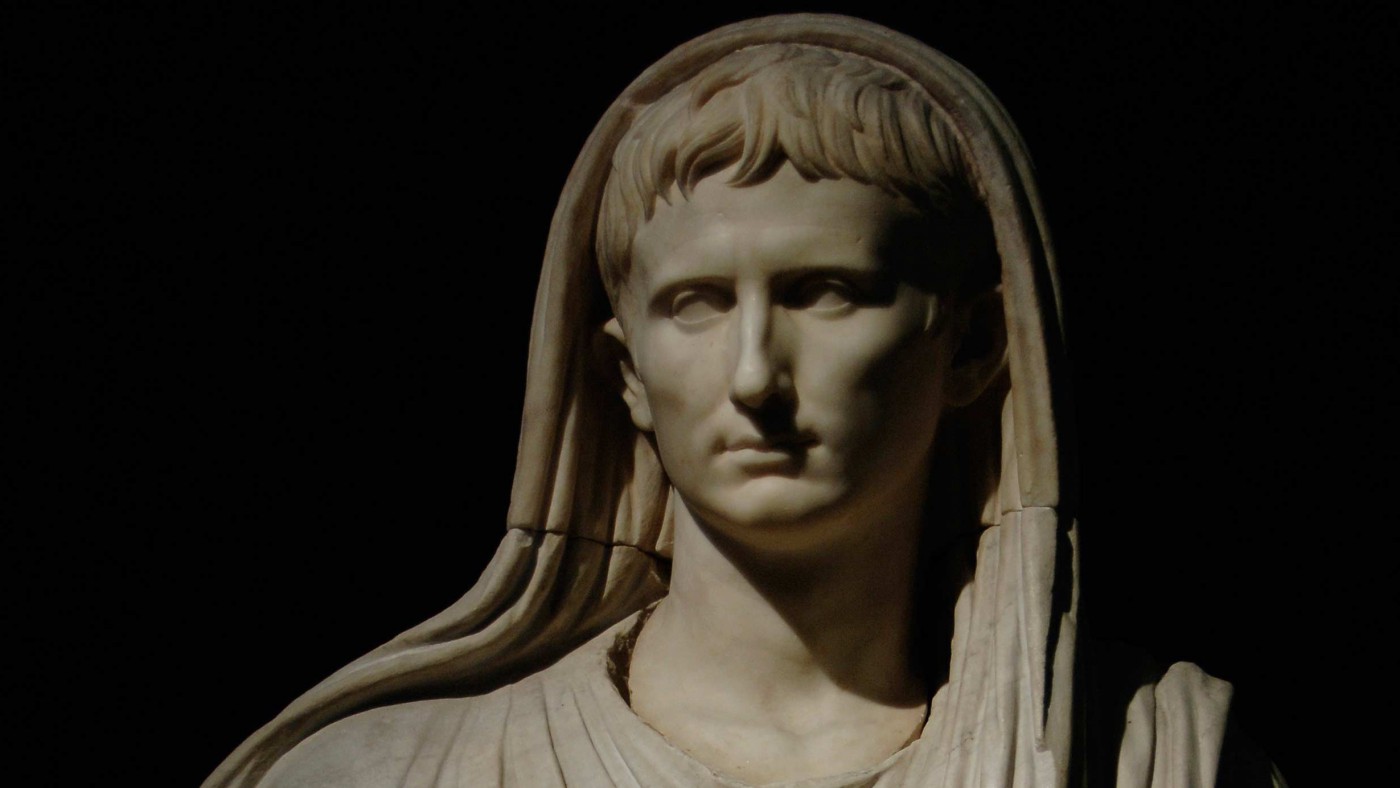Dynasty: The Rise and Fall of the House of Caesar. Tom Holland, Little, Brown Book Group, RRP £25
“When people think of imperial Rome, it is the city of the first Caesars that is more likely to come into their minds. There is no other period of ancient history that can compare for sheer unsettling fascination with its gallery of leading characters, Augustus and his heirs.”
Strong words from Tom Holland, historian and author not only of Dynasty but of Rubicon, the staple text for any Classicist (including me). He has a point. Even people with no classical background whatsoever know of Julius Caesar’s portentous crossing of the Rubicon river (alea iacta est, “the die has been cast”), his assassination at the hands of his former allies (“Et tu, Brute?”), the power struggle between his heirs Antony and Octavian (with a detour to Egypt and Cleopatra), resulting finally in Octavian cementing control, changing his name to Augustus, and becoming the first Emperor of Rome. This, then, is the story Holland tells: Augustus’ rise to power, and the intrigue, chaos, and total re-imagining of Rome that took place under his rule, and that of his four heirs.
There is a thin line between fiction and history, and Holland himself admits the difficulty of staying on the right side of it, especially given that the ancient historians were as fond of gossip and popular myth as we are today. He begins with one of the most absurd anecdotes from the Julio-Claudian dynasty: the Emperor Caligula, great-grandson of the mighty Augustus, ordering his solders to pick up seashells as the spoils of his war with the ocean. Is it true? Was Caligula really as mad as Roman historian Suetonius claims, making his horse a consul and sleeping with his sisters, or have the tales been “garbled in the transmission”? Ah, says Holland, it doesn’t matter – what matters is that the Roman historians thought it plausible enough to record it. (One wonders then what future historians will make of Lord Ashcroft’s recent book.) Rumours are as important to the historian as facts are. And so, in the next 450 pages, he proceeds to tell the most salacious version of history he can find.
That is not to say that there is not much in this book to satisfy an informed reader. Holland’s account is as thorough as it is wide-ranging, and fills gaps in my historical understanding which, after two degrees in Classics, I was unaware even existed. From detailed family trees, to meticulous military reports, to digressions into Roman religion, the book is breath-taking in its comprehensiveness. Scholars of Latin literature will enjoy the backstory to some of the great names – Why was Horace so happy with his farm? What did Seneca really think of Nero? – while undergraduates will be able to feign exhaustive research after skim-reading a few chapters.
But for Classicists and non-Classicists alike, what will stand out in Holland’s work is his ability to bring the darkest and most sordid elements of imperial Rome out of the shadows. Those familiar with Robert Graves’ I Claudius might be aware of whispers regarding Tiberius’ sexuality. Holland goes further, recounting how this Emperor, in retirement from Rome on the island of Capri, populated his grottos with the children of Rome’s aristocracy, who were forced to pose as prostitutes and enact obscene mythological scenes. The wife of the Emperor Claudius, Messalina, gets similar treatment, with descriptions of how, not satisfied with mere adultery, she turned to prostitution, escaping at night to work in a low-rent brothel. Holland notes that her name would later serve as a by-word for nymphomania, then digresses in his tale of Messalina’s inevitable downfall to point out that Claudius himself was considered sexually deviant for requesting only female whores. Truly, this is material fit for a Game-of-Thrones style TV adaptation.
For all its filth, one cannot miss the awe-inspiring grandeur of the Rome that Holland depicts. In politics as in conquest and architecture, Rome’s imperial family and those who interacted with them reached unprecedented heights. Augustus’ journey alone, from a violent rebel who slaughtered all who opposed him to the beloved ruler of a complex and ever-shifting empire, is the stuff of myth. Holland spends the first 150 pages documenting Augustus’ painstaking construction of the role of princeps (emperor), and the rest recounting how his descendants inadvertently sabotaged it, ending definitively with the suicide of Nero, the ‘artist’ of Rome. In the intervening century, the Roman Empire grows to span the continent.
“Augustus and Tiberius, Caligula and Claudius: each, in his own way, had succeeded in fashioning out of his rule of the world a legend that would for ever afterwards mark the House of Caesar as something eerie and more than mortal.” So Holland concludes his account, leaving the reader with the impression of blood, lust, and splendour. Part saga, part soap-opera, it is not an exaggeration to say that Dynasty is an epic, which takes as its hero the greatest political family that ever lived.


